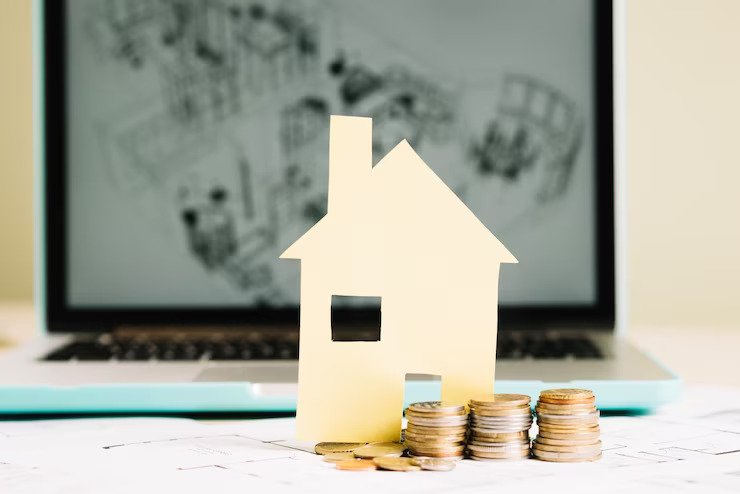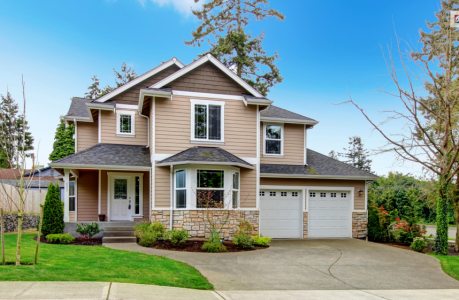Get On The Ladder, Fast: 4 Key First-Home Saving Tips

Homeownership is the dream of millions in the UK, but with prices having risen steadily over the past few decades, the first rung of the ladder is proving fiendishly slippy for many First-Home buyers.
Indeed, research from Barclays in 2022 found that first-time buyers typically saved for eight years before buying their first home, and even then, 56% were reliant on family for support in getting together an adequate deposit.
There’s no getting around it: saving for a deposit isn’t easy. But there are some tips and tricks you can employ to make amassing the tens of thousands required that bit simpler. Here are four of the best.
Get The Right Account
There’s little point in putting money aside into an account that doesn’t make your money work for you, so look into which accounts allow you to accrue the most interest in money left untouched.
Before you stick it all in a savings account, though, check out which schemes you might be able to use – a LISA, for instance, gives you a big 25% bonus each year on up to £4,000 of savings per year (netting you £5,000 overall, plus interest, per year).
Boost Your Credit Score
Your credit score shows lenders how responsible you are with money, which is crucial to them being able to approve you for a mortgage. There are three credit reference agencies lenders use – Experian, TransUnion, and Equifax – and all let you check out your credit score for free. If yours has room for improvement, then consider taking steps to build a better credit history. Doing so can unlock better rates, which is important as interest rates continue to rise.
Reduce Your Outgoings
While cutting back on coffees or avocados won’t magically generate you a deposit, part of saving is about reducing spending where possible.
Now, reducing what you spend doesn’t mean you can’t still have a good time: just consider limiting how much you spend when you do go out, or go out fortnight instead of every week. Consider whether you can reduce costs like bills using comparison sites or rent by moving into a flat or house share. And it’s viable; think about moving back in with family to slice back housing costs even further.
Regularly Review Your Progress And Contribution
Your approach to financing your house deposit shouldn’t remain static. Your house needs may change, or your account may start earning you less interest than a new one available at a competitor bank. Taking the time every few months to assess your situation can make sure you’re able to save in the best way for you, so put a date in the calendar every quarter to spend a few hours checking out the options available.
How Much Should You Save?
For those willing to purchase a home, possessing some cash is necessary. But what is the exact amount that one must save before purchasing a house? Precisely, you must have adequate cash saved in order to cover the closing charges, down payment as well as transportation.
Now, the exact amount might differ from one buyer to another on the basis of home sales prices. Given below is a brief breakdown of the money you should save before thinking of house buying.
-
Closing Charges
You might have to pay the closing charges on your mortgage loan while purchasing a home. The cost might be anywhere around 3 to 6% of the complete loan amount.
-
Down Payment
This might vary anywhere from $1 to your home’s 20% purchase price. It is critical to know that most home buyers having conventional loans must put down at least the loan’s 3-5%.
-
Transportation Costs
While local transportation might cost you somewhere around $1,500, a long-distance move can cost you upto $4,000. However, the actual charge depends on several factors, such as the amount of stuff and the distance.
Ultimate Savings For Down Payment Of A House
Certain prospective home buyers are of the opinion that they can never attain homeownership just because they are unable to afford a down payment of 20%. Well, the good news is that not all lenders nowadays ask for 20% down. But then, how much do you have to save for the purpose? It can be less than you have believed this far.
Less Than 3%?
Based on the credit score as well as the income one possesses, first-time buyers can seek a conventional loan. Also, the down payment percentage can be 3% or less. In case you qualify for a VA loan, chances are you can purchase a house without any down payment at all.
However, if you fail to qualify for a VA or USDA loan, things are still not out of your control. Certain states help first-time house buyers by offering less down payment. Once you start saving for your safe haven, make sure to go through the down payment assistance programs in your state.
Don’t Believe In Myths
A number of people believe that they require 20% down in order to purchase a house. But is that true? This myth of 20% down usually emerges from PMI or the private mortgage insurance rule that maximum mortgage investors and lenders possess.
In case you own less than 20% cash for the closing down payment, you might require to finance your private mortgage insurance. Also, this might be cataloged as a substitute for your monthly mortgage payment. Although the 20% down can save you money in the long run, it is definitely not a requirement when it comes to home buying.
Takeaways
In case you wish to save for your house, make sure to have a constructive plan in place. This will ensure how much you exactly require for the down payment. Contrary to popular belief, it is always a better idea to consult your real estate agent and banks about the home loan you are opting for.
With this, I bring an end to this discussion. But if you follow these tips, chances are you will be able to purchase a house very soon! Don’t forget to comment below and communicate your thoughts to us.
Read Also:


























Leave A Reply